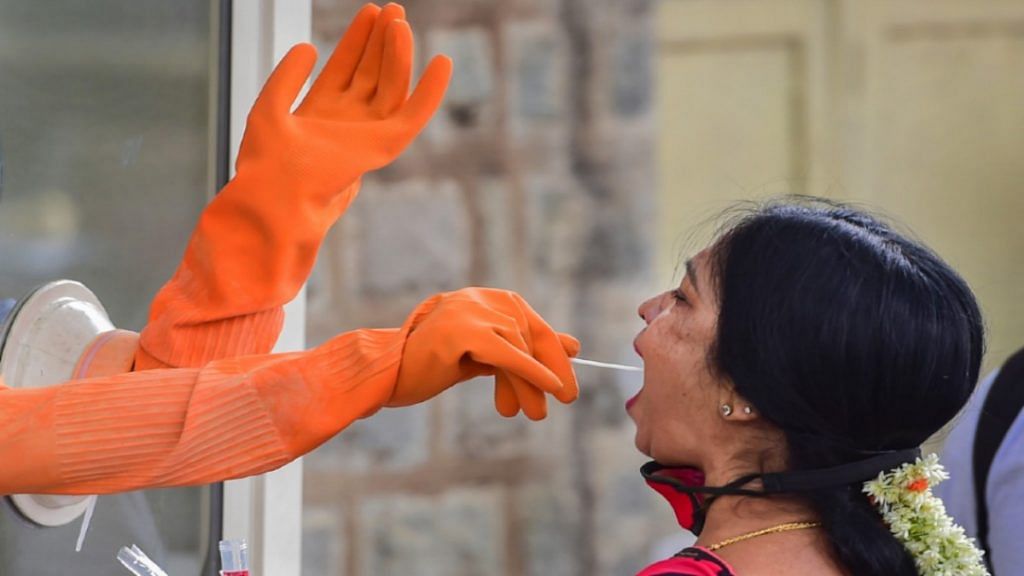New Delhi: In the ongoing Covid-19 pandemic, the importance of zinc has been documented by several scientific studies.
Association of zinc deficiency with severe Covid outcomes in patients has probably labelled zinc as the second most important nutrient after Vitamin D that can fight against the novel coronavirus. Across the globe, zinc has also been recognised as one of the indispensable components in standard Covid treatment plan.
Zinc is an essential element for the human body responsible for catalytic activity of more than 100 enzymes, adequate functioning of the immune system, synthesis of genetic materials, and maintaining cell integration.
Being an essential nutrient, zinc cannot be produced or stored in the body and needs to be supplemented through diet. An adult Indian needs 10-15 mg/day zinc to meet the recommended dietary allowance.
Oysters are the best-known sources of zinc. Other food sources include sea foods like crab, lobster, animal sources like red meat, poultry, and plant sources such as beans, nuts, whole grains and fortified breakfast cereals.
Also read: Dexamethasone, favipiravir, plasma therapy — how India’s Covid care has evolved in 5 months
Zinc and immune system
Evidence suggests that Covid-19 is more common in people with compromised immunity. A strong immunity is a collective outcome of many factors, diet being one of them.
Antioxidant nutrient zinc affects multiple aspects of the immune system. Zinc is needed for normal development and function of cells mediating innate immunity, neutrophils, and Natural Killer cells.
Macrophages, which are responsible for engulfing foreign pathogens by a process called phagocytosis, are also affected by zinc deficiency. Zinc deficiency leads to the growth and function of T and B lymphocytes. Zinc also functions as a potential antioxidant to prevent free radical-induced injury during inflammatory processes.
Zinc Ion and Zinc Ionophore as virus blockers
SARS-COV-2, the virus that causes Covid, is an RNA virus.
An RNA virus is a virus that has RNA (ribonucleic acid) as its genetic material. RNA-dependent RNA polymerase (RdRp) enzymes are the core enzymes of the RNA virus’s RNA-synthesizing machinery. Thus, RdRps are key targets for antiviral research.
In a study published this week, it was demonstrated that concentrations of intracellular zinc ion (Zn2+) efficiently impaired the replication of RNA viruses, including Covid and arteriviruses by blocking RdRp activity.
In cell culture studies, high Zn2+ concentrations and addition of ionophores (compounds that stimulate cellular import of Zn2+) such as hinokitiol (HK), pyrrolidine dithiocarbamate (PDTC) and pyrithione (PT) were found to inhibit the replication of various RNA viruses, including influenza virus and respiratory syncytial virus.
Also read: Too much turmeric, methi, vitamin D — Doctors fight new emergencies driven by Covid fear
Existing literature
A retrospective analysis of 249 Covid-symptomatic admitted patients to a tertiary university hospital in Barcelona, Spain, from 15 March to 30 April reported the death of 8 per cent of the total cohort (21 patients). Average baseline zinc levels among the 249 patients were 61 micrograms per decilitre (mcg/dl).
Among those who died, the zinc levels at baseline were significantly lower at 43 mcg/dl versus 63.1 mcg/dl in survivors. The authors concluded that plasma zinc levels at hospital admission were associated with mortality in Covid.
A study in Japan reported zinc deficiency in three patients (14 per cent) who remained mild to moderate during the Covid infectious period and six patients (84 per cent) were categorised as severe whose zinc level was below the cut-off value of zinc deficiency (less than 70 mcg/dl).
This study revealed a close relationship between low serum zinc and severe cases of Covid.
A study from India involving 47 Covid patients and 45 healthy individuals showed significantly lower zinc levels in Covid patients when compared to the healthy individuals.
Among the Covid patients, 27 (57.4 per cent) were found to be zinc-deficient. These patients were found to have higher rates of complications, acute respiratory distress syndrome, corticosteroid therapy, prolonged hospital stays, and increased mortality. The hospital stay was 7.9 days among the zinc-deficient patients, and 5.7 days among individuals with enough zinc level.
A retrospective observational study in the US involving 962 Covid patients, with admission dates ranging from 2 March to 11 April, aimed to compare the hospital outcomes among coronavirus patients ordered to receive hydroxychloroquine and azithromycin plus zinc sulphate versus hydroxychloroquine and azithromycin alone.
This study revealed 44 per cent reduction in death among 441 patients, who received hydroxychloroquine, azithromycin and zinc than 521 patients, who received just hydroxychloroquine and azithromycin. The study was the first in vivo evidence that showed that zinc sulphate may play a role in therapeutic management for Covid.
These studies don’t confer a causal relation between zinc deficiency and occurrence of Covid. However, the association between zinc deficiency, Covid severity and mortality needs scientific attention.
These findings sought for randomised control trials to establish the causal relationship between zinc deficiency and Covid, if any. Nonetheless, multiple studies have already established zinc as a strong immune-modulatory agent and a potential virus blocker, which places zinc as a vital treatment modality in standard Covid care plan.
Regular dietary intake is recommended to maintain optimum level. In case of deficiency, pharmacological supplementation is advised after consulting a physician.
The writer is a clinical and public health nutritionist and researcher.
Also read: Immunity boosters are a myth — why you shouldn’t believe claims that promise to fight Covid
